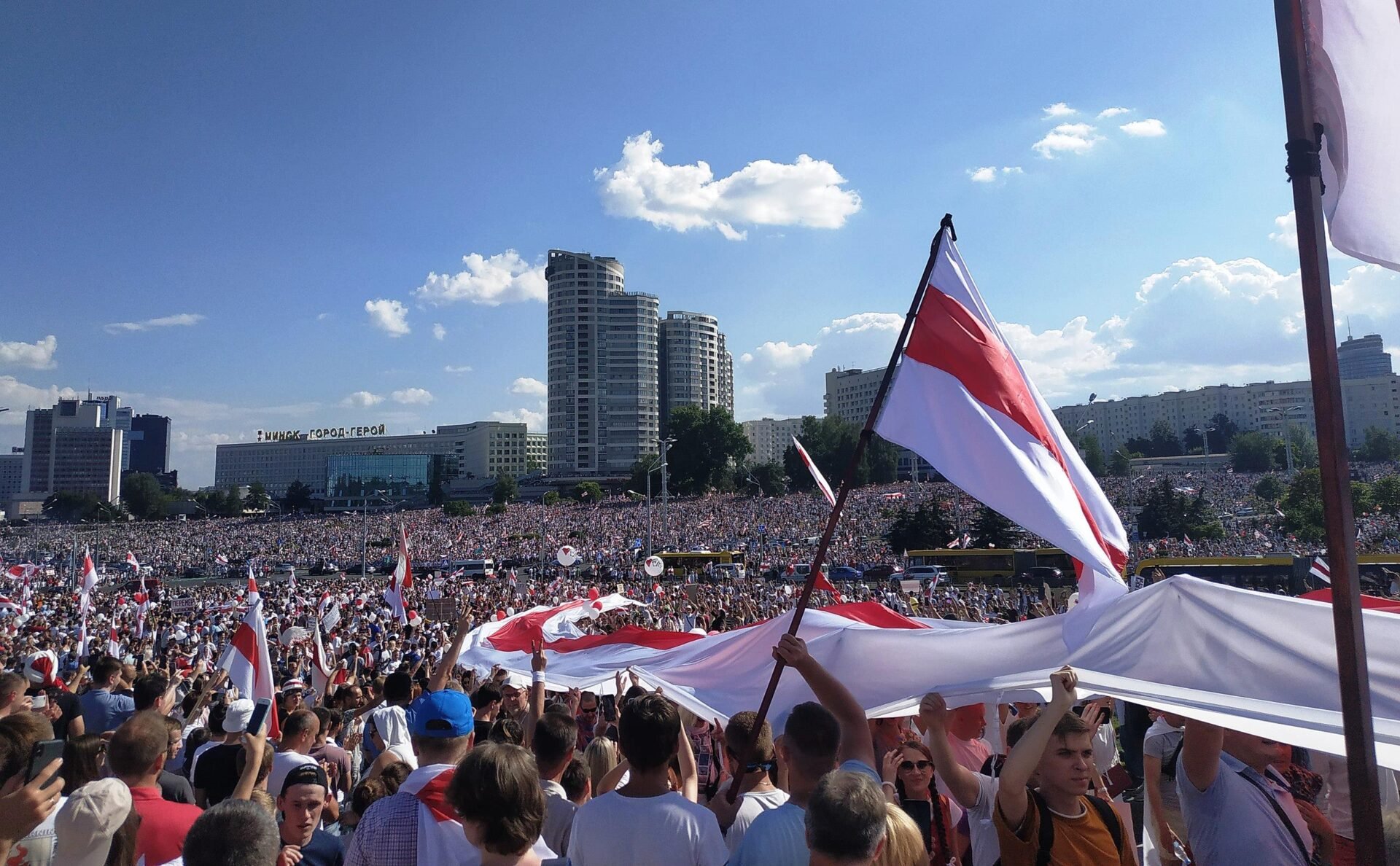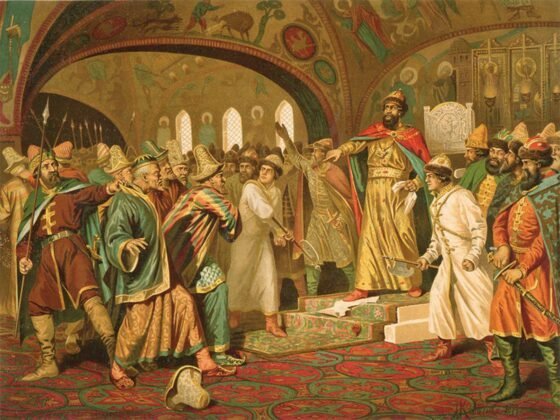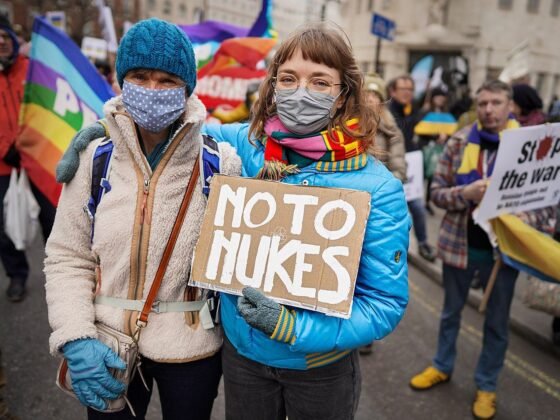For more than two years, Belarus has been stuck in a political crisis. Ever since the fraudulent presidential election and anti-government protests in August 2020, the root cause is that a collision between the regime’s self-preservation and society’s desire for self-determination remains unresolved. Meanwhile, the Russian invasion of Ukraine has changed the structural environment of the Belarusian regime and complicated prospects for its survival. Belarus’s enabling role in Russia’s war, its offer of territory for military operations, and support of Russian political and propaganda efforts have further weakened President Alyaksandr Lukashenka and his regime. His international political and economic isolation deepens, while the continued presence of Russian troops on Belarusian soil constitutes a large loss of sovereignty.
The forthcoming substantial rise of sanctions’ pressure on Belarus, resulting from the suspension of most trade with the EU and Ukraine, will have a dire effect on the economy. The depletion of resources triggers feuds within the bureaucracy, whereas the constitutional rearrangement that took place in February 2022 will possibly increase demand for at least moderate power-sharing. Finally, the legitimacy of the regime among “pro-stability” segments of society is in question since this stability is not provided. On the other hand, the weakness of the opposition, as well as the reluctance of Moscow to change the status quo, extend the lifespan of the regime.
The Change in the Western Approach: Domestic Implications
The Russia-Ukraine war has intensified the structural erosion of the regime’s stability. The first major effect is the end of the attempt at conducting a balanced foreign policy. For a quarter of a century, the Belarusian external policy line was opportunistic and sought to exploit the geopolitical rivalry between the West and Russia in order to balance relations with Moscow and extract political and economic benefits from both sides. The rapprochement between the West and Belarus in 2014-2020 was exemplary in this regard. Even after August 2020, when relations with the West collapsed, and even amidst the migrant crisis of 2021 created by Minsk, the regime was considering possibilities for normalization and indicated readiness to restore ties.
Belarus’s participation in the war against Ukraine—the March 2022 resolution of the UN General Assembly directly named Belarus an aggressor state along with Russia—put the regime in international diplomatic, political, and economic seclusion. It removed any lingering considerations in the West concerning the possibility of renewing contacts with Lukashenka. Furthermore, individual and sectoral sanctions have severely restricted travel, transit, finance, and trade. Several countries stopped issuing visas for Belarusians, and the sanctions undermined cooperation with China, which primarily viewed Belarus as a transit route to the EU. As Russia becomes a gatekeeper to Minsk’s trade with non-Western partners and its troops are deployed in Belarus at the will of the Kremlin, and without any obvious legal framework, the West is getting used to viewing Belarus as a non-sovereign actor. Consequently, the Western response to its initiatives, be it an offer to again host new Russia-Ukraine peace talks or provide territory for the export of Ukraine’s grain, remains negative.
All this undermines the regime’s “stability and security” narrative, which was actively spreading after August 2020 among the regime’s supporters. The economic effects of the war significantly limit the regime’s ability to guarantee the economic well-being of its core support groups, and even top representatives of Belarusian political leadership admit that. Western sanctions have been targeting the key revenue-generating sectors of the Belarusian economy, such as potassium fertilizers, energy, and transit services, which traditionally account for up to half of the country’s exports. The effects of the sanctions will be cumulative, and the full extent is yet to be seen. According to the Eurasian Development Bank, Belarus’s overall foreign trade volume decreased by 30 percent in the first half of 2022, even though high commodity prices and depreciation of the Belarusian ruble softened the immediate effect. The IMF expects the Belarusian GDP decline to reach 7 percent this year.
New fault lines have emerged, further consolidating the stand-off between the regime and society and lowering the former’s ability to create and play on divisions within the latter. A Chatham House poll conducted in June 2022 indicates that while the country may be divided when discussing the causes of the war and apportioning the blame, it is united in its opposition to Belarus’s participation in the war. More importantly, both Lukashenka’s supporters and his opponents are equally concerned about the negative consequences of the war for the country and for themselves.
Disoriented Elites
Lacking electoral legitimacy and economic resources to co-opt society, the regime maintains its hold on power mainly through widescale use of force. In the past two years, repression has reached an unprecedented level. In August 2022, the number of political prisoners in Belarus approached 1,300, which is five times the number the USSR had when Mikhail Gorbachev came to power. Yet, elite coherence and the regime’s ability to maintain control over key groups are in doubt. Economic troubles narrow the regime’s ability to distribute resources and reward loyalty among the bureaucracy, exacerbating inner feuds. In recent months, the security services stepped up pressure on the country’s business elites, pressure which included arrests of top managers at Gazpromtransgaz Belarus, the Belarusian Railways, and key banks such as Priorbank, BelVEB, and Belinvestbank.
The conflicts among the security services are less visible. Yet, frequent leaks of sensitive data, including databases and media wiretaps, may inter alia indicate the ongoing struggle among the agencies. Lukashenka’s mistrust of his own security services has not disappeared. His growing dependence on a collection of siloviki is balanced with a constant reshuffling of top personnel, the creation of new laws, and such practices as de facto forbidding representatives of security agencies to leave the country. Vladimir Archakov, deputy secretary of the Security Council overseeing Belarusian security services, was removed from his position as soon as he reached retirement age, another signal that direct presidential control is being reinforced.
The growing disequilibrium within the elites has been worsened by the regime’s refusal to agree to at least some power-sharing. The constitutional rearrangement that was completed in February 2022 —which had been seen as an attempt to reward elites for their loyalty through a certain decentralization of power—was totally overshadowed by the war. In August, Lukashenka once again rejected the transformation of the presidential mass organization “Belaya Rus” into a political party, which he had promised before, thus demonstrating unreadiness to initiate even cosmetic political changes.
The Russian Factor: Accelerating Regime Erosion
The Russian pillar of the Lukashenka system should no longer be taken for granted. A long-established status quo in Russia-Belarus relations has been shaken due to the above-mentioned collapse of the country’s attempts at multi-vector foreign policy. Even if the statements about Belarus’s “occupation” by Russia or its total loss of subjectivity are premature, the qualitative growth of Moscow’s influence is undeniable.
Belarus’s economic stability is more than ever dependent on Russia. In June 2022 alone, exports to Russia reached an all-time high of $2 billion, while the share of Russian imports exceeded 63 percent in January-June 2022. We can assume that the price tag for Russian support will rise further as the “old school” geopolitical loyalty gestures of words and promises will hardly suffice for Moscow. The Kremlin is in no hurry to satisfy Belarus’s requests for economic and financial assistance or to provide it with access to Russian infrastructure and industries. For instance, so far, Minsk has only succeeded in postponing the payment of its earlier debt of $1 billion. Even to preserve existing benefits, the Belarusian authorities have to bow low, such as when they hosted Denis Pushylin, head of the so-called Donetsk People’s Republic, in Brest in July, which ran contrary to Minsk’s official position of non-recognition of Ukraine’s breakaway entities.
The regime’s ability to limit and control Moscow’s impact on domestic affairs is declining. Lukashenka’s supporters in the country are under Moscow’s ideological and informational influence; Belarusian elites are developing ties with their Russian counterparts. In such conditions, any political mistake by Lukashenka may arguably have dire consequences in the future. Citizens are already aware, for example, that he violated the constitution to allow Moscow to use Belarusian territory to attack Ukraine, an action that provides technical grounds for impeachment.
What Delays Change?
Remarkably, despite ever-rising structural challenges, the regime’s survival faces no immediate threat. One of the main reasons is that there is no agency to challenge it with necessary might. First of all, the Belarusian opposition is in crisis. It is in organizational discord, and its influence on developments inside the country and on people’s minds is limited. Within the opposition, multiple centers of power compete for resources. Organizational divisions are aggravated by ideational procrastination. The opposition does not have a plan of immediate action. It has missed opportunities to score points, such as trying to benefit from the popular rejection of Belarus’s involvement in the war in Ukraine. Strategic goals appear declaratory. One major weakness is its cloudy view of future relations with Russia, which harms its outreach to all groups (pro-Russian, pro-Lukashenka, and even pro-European) in the population.
Although the oppositional conference “New Belarus” held in Vilnius in August 2022 took some steps toward restoring inner unity, it remains to be seen whether it can truly reconnect itself with the needs and aspirations of constituencies. Alternatively, it may stay entrapped within an illusion of power, which rests on the perception that opposition leader Sviatlana Tsikhanouskaya was the winner of the 2020 elections. The risk that the rank and file members of the opposition, both inside and outside Belarus, will be disillusioned and divided is still high enough. Some will radicalize and advocate violent methods of anti-regime struggle, while others will simply leave the movement. It should be kept in mind that it will be difficult for the Belarusian opposition to retain the attention of Western public opinion precisely because assistance to Ukraine requires so much effort.
Second, the West, and the EU in particular, show no intention of engaging in a geopolitical struggle for Belarus. Although the war has hardened the public’s views of Lukashenka and his regime (alongside sanctions and economic pressure on it), they are reactive in nature. The EU has not developed a strategy of what it wants Belarus to achieve in the future or what it would be ready to offer to help make a better future. The current EU support package is not adequate for any task. The expectation that the Belarusian opposition on its own can bring about the change and facilitate the country’s democratization is naïve at best.
Russia, in turn, has no reason to change course. Its political and economic control over Belarus has rapidly increased, which allows Moscow to dictate the terms of cooperation and bilateral integration. Russia secured a long-desired military presence in the country. Lukashenka fully realizes that his survival depends on his loyalty to Moscow. In this situation, the annexation or a hasty political merger, especially if there is no success in Ukraine, makes no sense. But if Moscow explicitly or implicitly chooses to maintain the status quo (or rather seek an incremental increase of its influence), such a policy will also indirectly help prevent people’s political mobilization.
Conclusion
The uncertainty regarding the future of the Lukashenka government will continue to grow. Rule through fear and intimidation is mostly unsustainable, yet the regime has no viable alternative. The deterioration of the economic and political environment elevates the regime’s dependence on Russia, which may turn into a component of instability. As the war in Ukraine has demonstrated, Moscow’s actions can be unpredictable, driven by hidden rationales and calculus, making it difficult for Belarusians to chart a course.
In these circumstances, the West should work on a strategy that would enhance Belarus’s societal resilience. It should be based on the understanding that Lukashenka is no longer able to guarantee the country’s independence and that his regime is a liability and not an asset from the point of view of Belarus’s sovereign future. The West should make it clear that an independent Belarus and its territorial integrity are strategically important for Europe’s future security and should be protected by the international community.
Ryhor Nizhnikau is Senior Research Fellow, and Arkady Moshes is Program Director of the EU Eastern Neighborhood and Russia research program, at the Finnish Institute of International Affairs.











